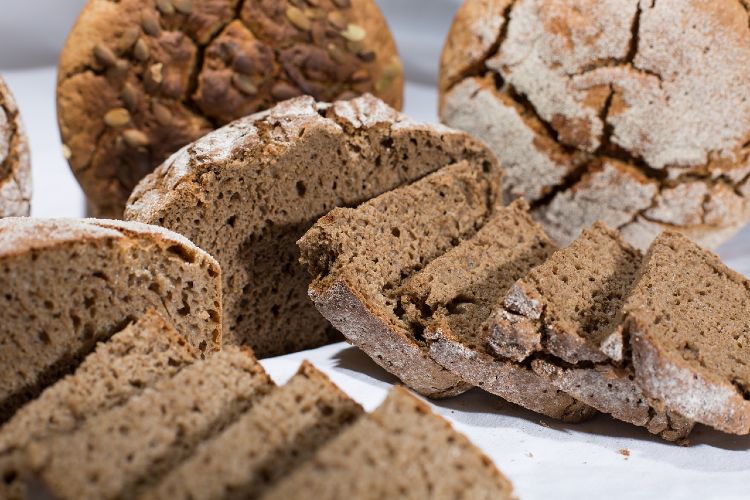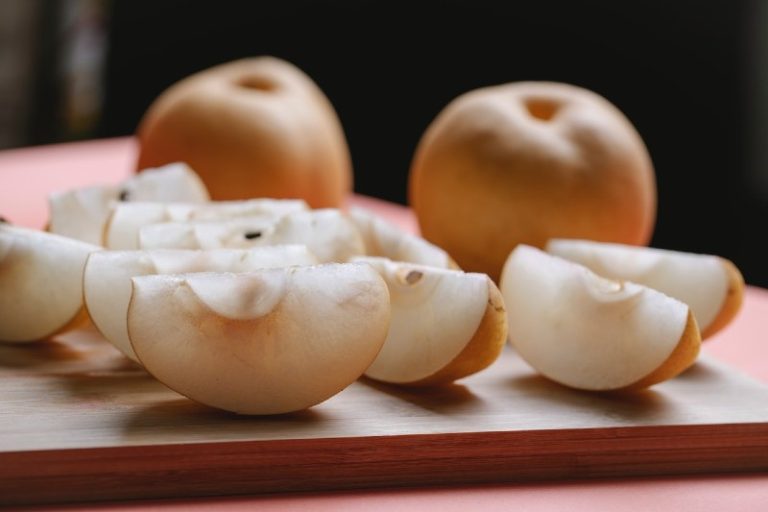Beekeeping Courses with Louise Marshall at Deans Court
All my life I have harboured a secret and burning desire to become a beekeeper. It’s the contact with nature, flowers, honey comb, white painted beehives and the apiarist’s jargon that enthral me. I constantly read the tweets of beekeepers and bee conservation trusts on Twitter and I want to join the clan: they seem busy, thriving, knowledgeable and wise people. Let me in, please.
Whilst interviewing Sir William and Lady Hanham at Deans Court, in Wimborne Mintser in Dorset, I was very fortunate to be offered the opportunity by Louise Marshall, the head beekeeper of the estate, to go with her around the fifteen beehives which are kept beside the serpentine wall that surrounds the kitchen garden. I leapt at the chance, thinking my moment had come.
Louise lives on the estate and she looks after all the bees on a daily basis, as well as running the beekeeping courses that are run there. She began beekeeping when she was a little girl living in the colonies. In Fiji and Cuba, her childhood homes, many people kept bees as a source of income and food. She even told me about a rather frightening incident when, in Cuba, she was once offered the chance to go and look at a local hive in a village. In the distance Louise saw a coffin, and she was very surprised, when the lid was opened, to see that the villagers had made wooden frames to slit inside the coffin, as if it were a beehive.
“They were so poor, they used whatever they could find to make the hive. I feared the worst at first. I thought I was about to be hijacked!”
You could not imagine a more beautiful place on earth for bees to live than Deans Court. There are 13 acres of beautiful organic flower gardens, a walled fruit and vegetable kitchen garden, a gravel herb garden, a wildflower meadow, orchards, mature trees, native hedges and a long lake. Lavender, borage, roses, apple trees, cherry trees, wild flowers and lilies: the nectar menu choice on offer is staggeringly varied, and starts with early spring bulbs and goes right through the seasons with ivy flowers and holly in the winter. Becuase the garden is accredited by the Soil Association (Deans Court was the very first garden to have received this status in Great Britain ), no chemicals are sprayed which means a far greater and more sustainable community of flora and fauna has thrived here for centuries.
The fifteen hives are placed in a long row, like a street of miniature beach huts on stilts, and the word “buzzing” does not quite describe how the hot summer air in front of me looks like. There are 50 000 bees all feeding, flying and working within a few metres of my face. Yet, very surprisingly, I am not worried.
Louise and I are completely covered in the mandatory white suits (white is calming for bees) with gauze veils in front of our faces. I have really thick gardening gauntlets on my hands and bees rush towards me to check me out. “They are not attacking you” Louise reassures me. “They can smell a different pheromone as you approach, so they need to come out and check whether you are a friend or a foe. Bees only attack people if they threaten the hive and the queen. Wasps tend to attack more randomly, but bees know they will die if they sting you, so it is the ultimate act of defence.”
Louise’s voice is so calm, gentle and soft, and she moves at a very slow, rhythmic pace. Wearing nothing more than a pair of Marigold rubber gloves she lifts the bitumen roof of the first hive, and, amidst a moving, tangled swarm of brown bodies and pale wings, I can see a plastic bowl with a lid, into which Louise places a sugar solution with bergamot and lemon grass oils. “If the weather is windy or wet bees won’t fly out of the hive. As a result they may not have enough nectar, and so I need to top them up with food.”
She explains that bees fly all over the estate collecting pollen, which they scoop up on hooks on their legs. They never get lost as they have an inbuilt ability to smell their way back home. The entire six week life span of a honey bee is centred round the queen: she is looked after, fed and protected by her worker army. They feed the larvae, which in turn, become the next generation of bees for the hive. They work themselves, quite literally, to death.
Louise says that if I want to start my own colony I will need to allocate around one and a half hours per week to look after the hive. We talk through the cost of setting up the project, but although it is not a cheap activity, the rewards, in terms of really good honey and benefits to the environment, far outweigh the outgoings. We touch on the very sensitive topic of bee stings, the deal breaker for most aspiring students. Louise admits “I have been stung a few times. Mainly it is because I have long, curly hair and the bees tend to get stuck in it. Then when I try to wave them off, with my hand, they sting me because they panic. If you find a bee on your arms or legs or wherever, don’t panic, just stand very still. It’s the waving that makes them think you are in attack mode.”
She checks the frames, the workers, queen, drones and larvae to ensure that all is well within the community. We can see a supersedure cell, which arises when the honey bees are not completely happy with the queen they have. “The worker bees may feel that she is not hard working enough for them, so they start creating their own new queen bee, by feeding one of the larvae with royal jelly.”
When we finally see the queen bee I can understand why she needs much more food than the rest: she is at least double the size of a worker bee, and she is rubbing herself around the workers, so that they smell her pheromones and groom her on her way. It is so easy to understand why in English jargon we call a woman who is high maintenance and dominant a “queen bee”: the tag fits very accurately.
Louise has not yet had to use her smoker to calm the bees. It contains burning hessian and twigs, with a little lavender oil to keep the bees calm. To ensure that the bees groom themselves, thus removing varroa mites, she sprinkles them with icing sugar. They then lick themselves all over, and any parasites simply fall through a mesh gauze at the bottom of the hive.
It takes four weeks to develop a full colony of ten frames, and during the beekeeping courses at Deans Court Louise ensures that all the students, ranging from primary school age to retired people, see frames at all different stages of development. The society within this wooden box is riveting: bee hives are the ultimate Communist communities, with all of the positive features that a labour model based on co-operation and collaboration can showcase and none of the negative ones.
“I absolutely love it!” enthuses Louise. “Even after all these years I find beekeeping the most wonderful of activities and I am constantly seeing new and interesting things. Whenever I lift the lid I am wondering what I am going to see. Every day is different, and no two beekeeping courses are the same because the bee’s agenda drives the entire programme.”
It is a female led society: the drones are used to mate with the queen, but once their job is done, in September, the male bees are all bumped off by the worker bees and the cycle starts again with the next set of new drones. Louise tells me that every now and then the drones have a little congregation, where they all fly off by themselves and hold court elsewhere for a few hours. “It’s a bit like lads going off to watch football or go to the pub by themselves, to get away from their wives!” she laughs.
Inside the hives Louise has written “Deans Court Apiary. The gardener needs the beekeeper. The beekeeper needs the gardener”. The vegetable garden and trees would not be pollinated without these helpers and, in turn, they provide 30 good jars of clear, runny honey per hive.
The Head Gardener, Julian Ings, assistant gardener, Troy Coverdale, and Chefs Jez Barfoot and Matt Davy all work together in creating meals with the homegrown produce from the kitchen garden. The new cookery school and restaurant that is going to be created out of an old squash court just outside the estate walls is a new initiative that is also going to rely on Louise’s bees. They are the sustainability and bio-diversity lynchpin of this estate.
From the history of beekeeping, to planting a bee garden, the best hives to buy, how to manage a swarm, look after the workers, collect honey and stay safe throughout the process, Louise is a walking beekeeping encyclopaedia. She has dedicated her life to this work and her devotion is inspirational. Her story is also very sobering:
“Bees quite literally saved my life. When my two daughters were very small my husband decided to leave. We had no money to live on. I sat on the steps of my house and was just overcome by the worry and fear of it all. Luck came and found me: a lady said that there was going to be a sale at the school fete and she asked me whether I wanted to sell my honey. I sold every jar and made £70. My daughters are older now, and I also have a good day job to help pay the bills, but I have never forgotten that moment, and the gratitude I feel towards my bees will stay with me for the rest of my life.”
And as I stand on this ancient land, for the very first time holding a beehive frame, heavy with crawling bees, their wax, queen, eggs and drones, I certainly will never forget my time with Louise Marshall. She has started me off on a lifetime’s adventure. Maybe I too can join this special clan after all.
Contact Details
To book a beekeeping course at Deans Court go the websites at: www.deanscourt.org and www.feastofdorset.com.
Follow the Deans Court team on Twitter: @deans_court


